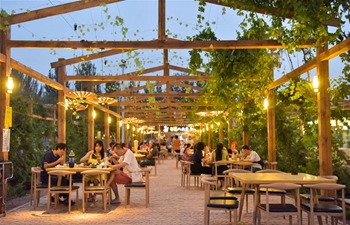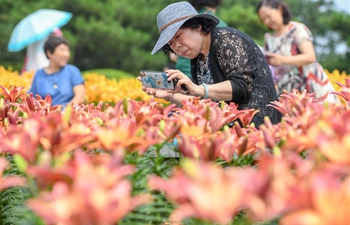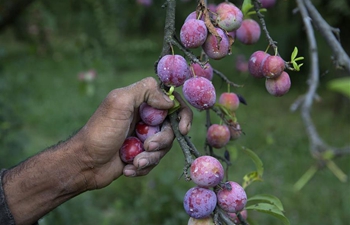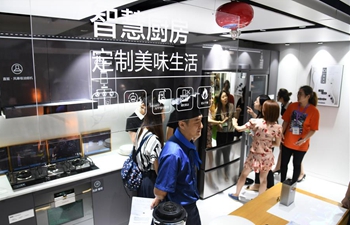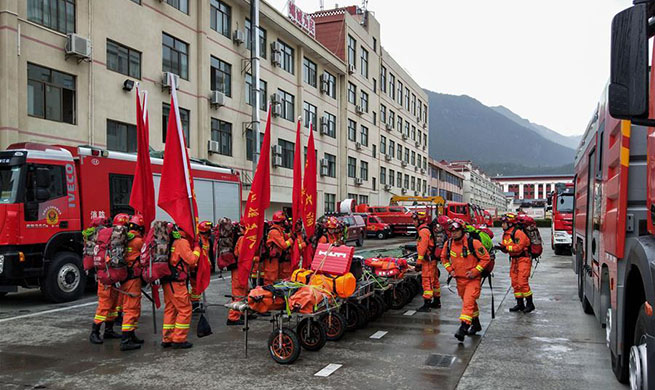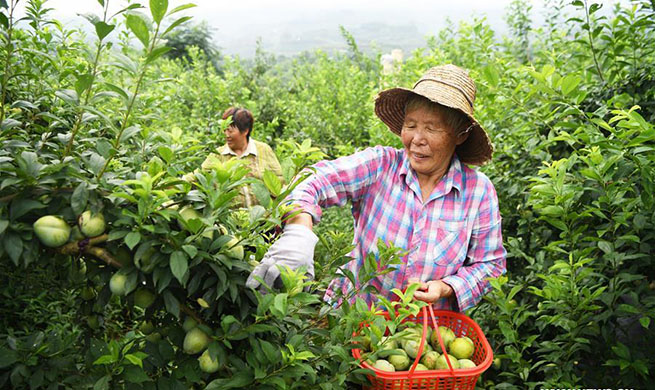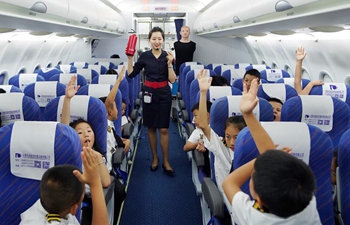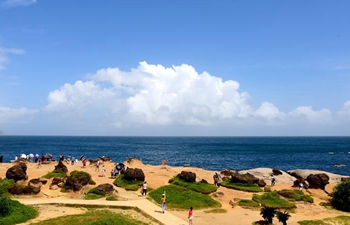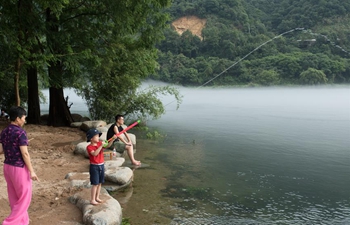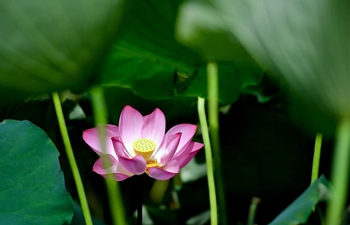BANDAR SERI BEGAWAN, July 20 (Xinhua) -- The Brunei government is currently working to create a higher-yielding rice strain capable of producing 10 to 12 tons per hectare a season, which is part of its effort to increase rice production and reduce heavy reliance on rice imports.
Last year, in collaboration with Indonesia's Biogene Plantation, the government introduced to local farmers a high-yielding strain "Sembada (188)" variant, capable of reaching 8 tons per hectare a season.
The government also worked with a Myanmar firm to work on hybrid "Titih" which is capable of reaching eight metric tonnes per hectare. The Brunei government hopes to introduce "Titih" variant next year in 2020.
However, the country "is not stopping there," Brunei's Minister of Primary Resources and Tourism Dato Ali told Xinhua recently.
He said the government is currently collaborating with a China-based institution, Yuan Longping High-Tech Agriculture Co Ltd, to come up with a hybrid that can produce an even higher yield.
Yuan Longping is a world-known award-winning rice scientist dubbed "the father of hybrid rice."
"We are still working on it because the Chinese are going through some challenges with our soil condition. The research is currently trying to reach 10 tons per hectare," the minister said.
The minister added that the country is looking for a hybrid that can produce 10 to 12 tons per hectare.
"From the trials that were carried out, the highest yield so far was around 9 tons per hectare, " said the minister.
But with the introduction of higher yield paddy variances and the opening of more cultivation sites such as in Pancur Murai and Limpaki, the sultanate hopes to improve the nation's rice production and self-sufficiency level.
The first phase of infrastructure construction to turn 500 hectares of rainforest in Kandol into large-scale paddy cultivation is expected to be completed in October. Once fully operational, it will be the sultanate's largest paddy field.
Ali said once the infrastructure complete this year, the first planting will begin on a 20-hectare plot out of the total farm area of 500 hectares in October.
He said the country aims to be 10 percent self-sufficient by 2020, double the current figure of 5 percent. After the 500-hectare site becomes fully operational, the sultanate hopes to be 20 percent self-sufficient.
Darussalam Assets, a Brunei government-linked company, has been assigned to look for the right partners to operate the rice cultivation operations at the new field.
Darussalam Asset has received several proposals for evaluation, the minister said.
